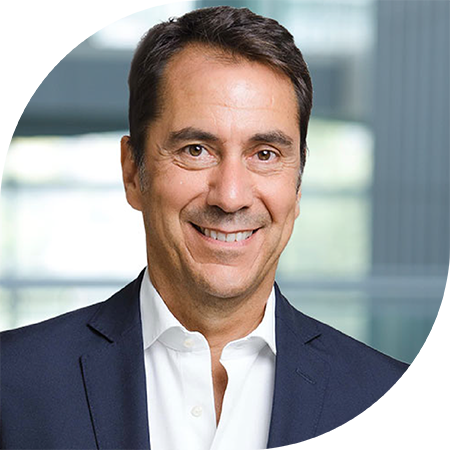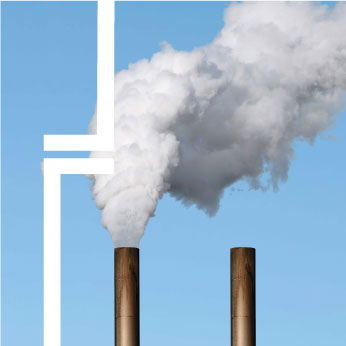
Because good health also depends on a healthy planet, we champion a future where nature and humanity thrive in harmony. We are committed to enhancing product sustainability, fostering circularity, designing for recyclability, and reducing waste.
Championing a more sustainable future
At Ipsen, we’re passionate about fostering a sustainable future for our planet and communities. Our comprehensive environmental strategy revolves around responsible consumption and production, decisive climate action and protecting the earth’s precious ecosystems. Aligned with the UN Sustainable Development Goal 12, our environmental pillar has a strong focus on minimizing our environmental footprint through ambitious commitments:
- Leading on climate, which includes science-based target commitments for direct and indirect emissions, and ultimately net-zero by 2045.
- Preserving natural resources and ecosystems – preserving nature by responsibly managing water, ensuring minimal impact of our discharges to environment, and actively promoting biodiversity.
- Enhancing product sustainability – increasing circularity, designing products with a focus on recyclability, implementing sustainable value chain opportunities, and actively reducing waste.
All environmental issues are managed by Ipsen’s Environment Health and Safety (EHS) governance bodies at every level of the organization. We comply with all applicable regulatory requirements as well as our own EHS policy, standards and requirements wherever we operate. This is validated by Group certification to the ISO 45001-2018 Occupational Health & Safety and ISO 14001-2015 Environmental Management system international standards.
How we are working to create a sustainable future
Ipsen is continually looking at how we can optimize our processes to minimize our impact on the climate and create positive change. Here are a few examples:
Sustainable Facility Upgrades
Our Dublin facility now features a state-of-the-art waste heat recovery and reuse system and a high-efficiency, low Global Warming Potential (GWP) gas chiller system. At Wrexham, an HVAC optimization program is in place. Ongoing improvements in maintenance, reliability, and investment in low-GWP replacement gases are effectively reducing refrigerant gas emissions, a “Facilities Playbook”, offering a comprehensive set of guidelines, policies, and procedures to optimize real estate investments and create sustainable workplace environments. This initiative emphasizes energy efficiency, water conservation, material selection, indoor air quality, and sustainable site development for new offices.
Science-based targets approval
Ipsen is committed to contributing to a net-zero future and to limiting the impacts of climate change by achieving science-based reductions in greenhouse gas (GHG) emissions across all direct and indirect sources in its value chain (Scopes 1, 2, and 3).
Following a comprehensive re-baselining exercise completed in 2024, the Science Based Targets initiative (SBTi) approved Ipsen’s near-term and long-term targets in July 2025. Ipsen has committed to reduce its absolute Scope 1 and 2 emissions by 57% and its Scope 3 emissions by 28% by 2030, using 2019 as the baseline year.
These targets are aligned with the SBTi cross-sector pathway and consistent with the global decarbonization trajectory required to limit temperature rise to 1.5 °C.
The SBTi has also validated Ipsen’s long-term net-zero target for 2045, under which the company will reduce absolute Scope 1, 2, and 3 emissions by at least 90% from 2019 levels and neutralize any residual emissions through high-quality carbon removals, in line with the SBTi Corporate Net-Zero Standard.
Acting as a renewable energy leader
95% of Ipsen’s global electricity came from renewable sources by the end of 2023, demonstrating our dedication to adopting clean energy solutions.
By reducing our carbon footprint, we are actively contributing to a greener future for our planet. Ipsen is committed to using 100% renewable electricity by 2025.
Reducing energy use in facilities
To demonstrate our commitment to sustainable energy consumption and greenhouse gas emissions (GHG) reductions, we are reducing our facility energy intensity.
In 2023, we maintained our 2022 facility energy intensity. To provide a more holistic and nuanced understanding of Ipsen’s environmental impact, Ipsen has changed the way it presents the KPIs by calculating them by Revenue rather than Occupied Area. One example of how we are doing this is the installation of a waste heat recovery and reuse system at our Dublin facility, alongside a new high-efficiency gas chiller system.
Minimizing the climate impact of our offices
Ipsen is committed to achieving a sustainable real estate footprint to minimize the climate impact of our office locations.
Our UK hub was moved to London in the first quarter of 2024 to maximize our ability to collaborate effectively across functions, harness the power of innovation within our R&D and commercialization teams and ultimately limit our impact on the environment.
In addition, Ipsen has created a “Facilities Playbook”, a comprehensive set of guidelines, policies and procedures designed to optimize our real estate investments and create dynamic and secure workplace environments that support the changing nature of work. For our new offices, we are paying particular attention to energy efficiency, water conservation, materials selection, indoor air quality, and sustainable site development.
Transitioning to a greener fleet
Through the Fleet For Future project launched in 2021, we are actively promoting sustainable transportation by transitioning to electric vehicles within our fleet. In 2023, Ipsen reduced fleet carbon emissions by 32% compared to 2019. Ipsen is committed to elevate the share of Battery Electric Vehicles (BEVs) within its Group fleet by 30% by 2025.
Decreasing waste generation
We work to reduce waste generated in our operations and to choose the most sustainable waste treatment destinations where possible. To provide a more holistic and nuanced understanding of Ipsen’s environmental impact, we have changed the way how we present our KPIs by calculating them by Revenue rather than Occupied Area. Thus, in 2023, waste intensity, measured per Kg/Million €, was down 13% vs. 2019 baseline.
Increasing waste recycling rate
Alongside waste reduction, we aim to send as much waste as possible for recycling or recovery.
In 2023, Ipsen’s waste recycling rate continues to increase. 51% of Ipsen’s waste is now sent for either recycling or recovery treatment vs 22% in 2019. This increase also applies to Ipsen’s waste-to-energy amount, which has risen by 37% vs 2019; a sign of the successful implementation of Ipsen’s policy to promote sustainable waste management practices.
Awarding Nature and Biodiversity Certificates to our sites
Ipsen protects biodiversity through a Biodiversity Strategy Plan (BSP) that has been developed to drive further actions across the Company.
Since 2021, Ipsen has been working towards:
- Improving ecological surveys across all of its sites,
- Developing a biodiversity strategy plan to incorporate all its actions towards achieving “Nature Positive by 2030”,
- Developing a biodiversity policy and associated KPIs,
- Setting up a site biodiversity certification system (Nature & Biodiversity Certification Scheme),
- Assessing the high-level upstream and downstream value chain impact for its product Somatuline and its operations on site,
- Engaging its staff with the topic of biodiversity through all Ipsen employee events.












